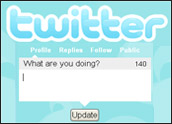A day doesn’t seem to go by without one software developer or another announcing the launch of a new smartphone application. Everyone seems to be getting into the mobile app game — but is anyone actually making any money doing it?
The consensus is yes — but there is more than one way to make money.
Alexander Bartfeld took a hard look at the market before launching his software development company six months ago. Everyone was trying to make money off the Internet, he said. Instead, the developers making money were the ones that realized the Web is a tool to draw customers to existing offerings and improve productivity.
“We help businesses prepare for mobile business,” the cofounder of Codex said. “They also need help devising their strategy and executing their technology. Our customers are asking us for analysis to make sure their strategy remains current.”
Making Money Directly
While it may happen, it’s rare that lone programmers sitting at home design apps that sell by the millions through Apple’s iPhone App Store or the like.
“It can be hard to make money off of the app itself,” Bartfeld explained.
Instead, mobile apps are often distributed for free, and programmers make money by developing apps for customers who want to add another dimension to their business model, Bartfeld told TechNewsWorld.
“This is a profitable business,” he said.
For example, Codex worked with a sports equipment magazine to develop a mobile app to locate sports equipment.
“The readers are going to like it, and the advertisers are going to like it. It adds value,” Bartfeld said.
Licensing Mobile Apps
Kooaba is another software developer making money designing mobile apps. The company has recurring monthly revenue through licenses — reseller and technology licenses, Herbert Bay, chief executive officer of Kooaba, told TechNewsWorld.
One of Kooaba’s recent apps, Kooaba Library, allows iPhone and Android mobile phone users to build a virtual, interactive catalog of their collections or wish lists, including movies, books, CDs and video games. Subscribers are able to organize and share their virtual libraries with others via social media networks such as Facebook.
“We are connecting the real world with the Internet through images taken with a mobile phone,” Bay said. Kooaba Library first recognizes an item and catalogs it. Then the search technology gathers and links relevant information pertaining to the item.
Publishers are able to create interactive content, which generates advertising revenue, and generate sales by providing an instant way for users to purchase items.
The software developer has more than 250,000 users and a growing list of partners, including BMW, Nivea, Amazon.com, Levi’s, AT&T, Wired and Omega.
Developing Custom Apps
Another mobile software developer, Cerado, makes money by designing smartphone apps for businesses to help clients stay connected with on-the-go customers. Cerado developed the free Nat Decants mobile app for noted wine journalist Natalie Maclean.
The mobile app is a guide to more than 300,000 food and wine pairings. It also includes reviews, recipes and articles. All of this information can easily be shared on social networks using only a mobile phone.
“Mobile is all about the customer’s experience with the application and the device,” said Christopher Carfi, CEO of Cerado. “When mobile apps are done well, the device itself seems to disappear, and the user is able to be immersed in the experience.”
While some developers have found the approval process for mobile apps difficult, especially with the iPhone App Store, Carfi told TechNewsWorld it is not difficult.
It is important for developers to understand the requirements of the approval process, he said, adding that the Nat Decants application was approved by Apple in less than a week.
Forecasting More Money
How much money is being made selling mobile apps? Profits are hard to determine because developers are reluctant to reveal their bottom lines — but there is money being spent on apps, according to research firm Gartner.
Consumers are expected to spend US$6.2 billion in mobile application stores this year, Gartner forecasts, with downloads at the app stores exceeding $4.5 billion. This will only continue to grow, with downloads forecast to surpass $21.6 billion by 2013.
Eight out of 10 downloads will be free to end-users. Free downloads will account for 87 percent of the market in 2013, Gartner predicts. Applications are free for the users because developers will offset the cost by making money on other things — perhaps integrating advertising with mobile content or charging for physical goods.
Games are the No. 1 mobile application, followed by mobile shopping and social networking, Gartner reported. The number of productivity tools available is also growing.
Going Mobile
Mobile applications are becoming commonplace even in some sectors that might have been expected to lag.
Financial services firms, for example, were initially hesistant to embrace anything to do with mobile technology.
“They soon found it to be indespensible,” said J. Dax Hansen, a partner at the law firm Perkins Coie, who often works with banks concerning payment products and payment systems for mobile applications.
“I’ve been really busy lately,” Hansen told TechNewsWorld. “Most of my practice is now focused on mobile, and it is displacing the bricks-and-mortar work that I do.”
Consumers are going to be demanding more mobile apps, Hansen said. “You are going to be doing more and more on your phone. You name it — everything you can imagine.”





















































